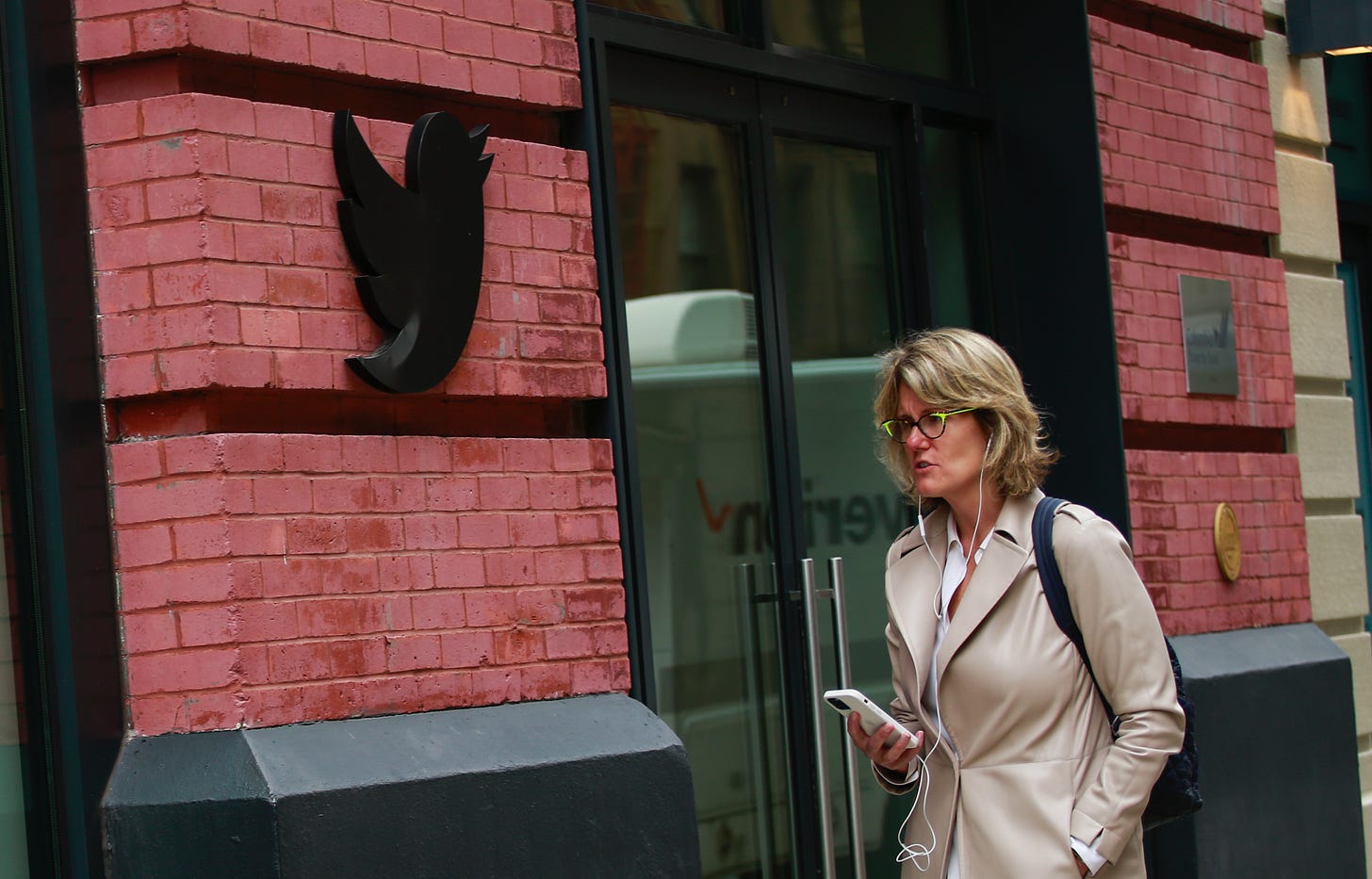Savor the Great Musk Panic
On drinking the delicious tears of blue-check hypocrites, who've suddenly discovered the perils of a privatized speech landscape
The New York Times earlier this week ran a guest essay by Gawker founding editor Elizabeth Spiers, fulminating about Elon Musk’s effort to purchase Twitter. She wrote:
What exactly does [Musk] believe can’t be said on the platform right now? It certainly doesn’t take long to find discredited race science, arguments that women are intellectually inferior, antisemitism… It is easy to assume that the banned speech that Mr. Musk is standing up for is worse even than that. As the comedian Michael Che put it on “Saturday Night Live,” the $44 billion deal shows “how badly white guys want to use the N-word.”
This is the elite argument against free speech in a nutshell: “If you favor ‘all legal speech,’ you really just want to slander, threaten, and harass. Now please let me tiptoe up to libel myself, as I tell millions of New York Times readers I ‘assume’ you’re a racist itching to use the N-word.”
The hypocrisy of America’s self-appointed culture-protectors this week is breathtaking. They really seem not to realize that what they’ve been seeking for years isn’t an end to speech abuses, but a monopoly on them. They see Musk as a traitor to his class, threatening to upend what they see as a natural order that in recent years placed bluenose squads in deserved roles as vanguards and truth-arbiters. Whether or not Musk ever upends anything is a different question, but critics believe he will, and now they’re panicking, in tones of maximum sanctimony. They’re even pulling out “Who will protect the children?”-style language:




I spent a good part of the last four years warning that asking unaccountable billionaires to meddle more in speech would result in exactly such a table-turning episode, in which the political mainstream’s cocky censor squad would wake up one day to find the wrong tycoon in charge, at which point they would cry foul and howl suddenly about the evils of oligarchy. For failing to cheer their vision of enlightened censorship, colleagues denounced me as a reactionary pervert in the employ of (pick one) Trump/Assad/Putin. So it’s hard to do anything but chuckle at their anguish this week.
According to mainstream legend, Twitter executives were forced to re-think their hands-off, “free speech wing of the free speech party” approach after watching the @RealDonaldTrump account become the world’s most-followed news network during the 2016 election campaign. In doing so, they upended the power of traditional news media figures to filter out what they deemed unacceptable political candidates. The Washington Post would later describe how anguished Twitter general counsel Vijaya Gadde and CEO Jack Dorsey realized after Trump’s election that their product had escaped its pen and needed putting down:
Twitter’s largely liberal employee base faced growing criticism, and workers complained that the first question they were asked when they told someone they worked at the social media service was, what about Trump’s account? His account was even briefly deactivated once by a rogue Twitter employee in 2017.
By 2018, Dorsey and Gadde, whose title is legal, policy and trust and safety lead, knew they had to rethink their approach to powerful people’s megaphones. Executives began to devise new policies and product features that would enable the company to place a specific label to cover up a tweet.
The Post went on to describe a Shakespearean tragedy, in which executives like Dorsey and Gadde tried, against all logic and evidence, to cling to doomed speech principles throughout the Trump presidency. Blind to their fate as all tragic figures must be, they held on past the bitter end, leaving Trump’s account up long enough to imperil democracy itself via the insurrection (democracy was always “democracy itself” in the Trump years). January 6th in this version of the story was clearly Twitter’s fault, caused by “a mob of Trump supporters, following the president’s calls on Twitter,” as the Post put it. When the company then belatedly did the right thing and deactivated Trump’s account, the Post said it “brought to an end an era of free speech online” that Twitter “itself helped create.”
That’s one version of history. I remember another.
Keep reading with a 7-day free trial
Subscribe to Racket News to keep reading this post and get 7 days of free access to the full post archives.



